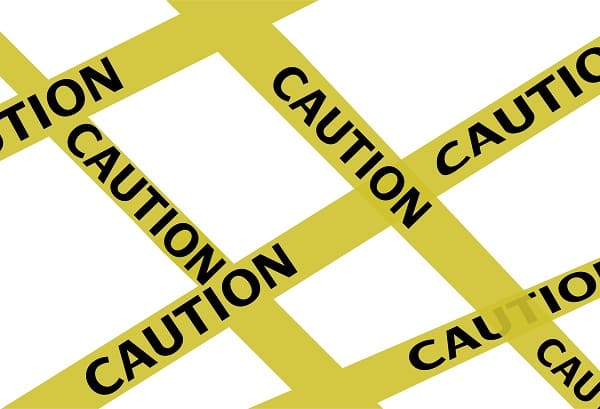The concept of survival extends far beyond dramatic, life-or-death scenarios often depicted in movies or television shows. Everyday life is filled with warning signs that, if ignored, could jeopardize personal safety and well-being. Whether these signs come from the environment, technology, or even one’s body, recognizing them early is crucial for appropriate action. This article provides a comprehensive guide on warning signs that should never be overlooked. From situational awareness to the dangers of overconfidence, each section will delve into specific indicators that can serve as early alerts for potential hazards. Ignoring these could have severe, sometimes fatal, consequences.
Contents
- 1 The Importance Of Situational Awareness
- 2 Ignoring Nature’s Red Flags
- 3 Overlooking Health Symptoms
- 4 Disregarding Social Cues In Dangerous Situations
- 5 Ignoring Technological Alerts
- 6 Neglecting Basic Survival Skills
- 7 Underestimating Psychological Preparedness
- 8 Overconfidence As A Hidden Hazard
- 9 The Bottom Line
The Importance Of Situational Awareness

Situational awareness refers to being conscious of one’s environment and interpreting it correctly to respond to possible threats. For example, a person who notices a gathering crowd and heightened police activity in a public space may deduce something is amiss and leave the area. Ignoring such cues can place one in unnecessary danger.
The importance of situational awareness extends beyond urban settings. In wilderness survival scenarios, being aware of your surroundings can help you notice critical warning signs like a sudden change in weather or unusual animal behavior. These signs can serve as early indicators of potential hazards, giving you the time to take preventive measures.
Ignoring Nature’s Red Flags

Nature has its way of sending out warning signals, and ignoring them can be perilous. For instance, a sudden drop in temperature could indicate an approaching storm or the onset of nightfall, both of which could be dangerous if unprepared. Similarly, a calm before a storm is often mistaken for good weather, leading people to underestimate the risks involved.
Animal behavior can also serve as a warning sign. Birds flying low or animals appearing more skittish than usual could indicate an impending natural disaster like an earthquake or a storm. Being attuned to such signs can provide valuable time to seek shelter or move to a safer location, thereby increasing chances of survival.
Overlooking Health Symptoms

Ignoring health symptoms can be as dangerous as neglecting nature’s warning signs. Dehydration, for example, starts with mild symptoms like thirst and dry mouth but can quickly escalate into a life-threatening condition if not addressed. Similarly, ignoring the early signs of hypothermia, such as shivering and confusion, can lead to severe consequences.
In social settings, health symptoms can also serve as warning signs. For example, feeling lightheaded or dizzy in a crowded place could indicate a lack of fresh air or the onset of a medical condition. Recognizing these signs and taking immediate action, like moving to an open space or seeking medical help, can prevent a situation from escalating into a crisis.
Disregarding Social Cues In Dangerous Situations

Social cues often serve as warning signs in potentially dangerous situations. Erratic or suspicious behavior from people around you should not be ignored. For instance, if someone is acting unusually aggressive or anxious, it could indicate impending danger, such as a fight or a dangerous situation.
Trusting one’s gut feeling is another crucial aspect of recognizing social cues. If something feels off or uncomfortable, it’s often a sign that something is wrong. Ignoring this instinctual feeling can sometimes lead to regrettable outcomes. Therefore, it’s essential to be aware of social cues and trust your instincts to navigate safely through various situations.
Ignoring Technological Alerts

In today’s digital age, technology provides numerous ways to stay informed about potential dangers. Emergency alerts on smartphones, for instance, can warn us about severe weather conditions, natural disasters, or other significant events. Ignoring these alerts can result in a lack of preparedness, putting lives at risk.
Similarly, modern vehicles have warning lights and sounds indicating low fuel, engine problems, or tire pressure imbalances. Disregarding these technological warnings can lead to breakdowns or accidents, especially in remote areas where help may not be readily available.
Neglecting Basic Survival Skills

Basic survival skills like fire-making and navigation are often overlooked in the age of technology. However, these skills can be life-saving in certain situations. For example, knowing when and how to start a fire can be crucial in cold environments. Ignoring the warning signs that you need to make a fire, like dropping temperatures or wet conditions, can lead to hypothermia.
Navigation skills are equally important. If you find yourself going in circles or recognizing landmarks you’ve passed before, these are warning signs that you’re lost. Ignoring these signs and continuing without a clear sense of direction can lead to exhaustion and an increased risk of exposure to the elements.
Underestimating Psychological Preparedness

Psychological preparedness is often underestimated when it comes to survival situations. Signs of panic or extreme anxiety, such as rapid breathing or trembling hands, should not be ignored. These indicate that your mental state is deteriorating, impairing judgment and decision-making abilities.
Mental resilience is equally important. A strong mental state can help you think, make rational decisions, and act appropriately in stressful situations. Ignoring the importance of psychological preparedness can lead to poor choices and decreased chances of survival.
Overconfidence As A Hidden Hazard

Overconfidence can be a subtle yet dangerous warning sign that many people overlook. The belief that one is invulnerable or exceptionally skilled can lead to risky behavior, such as taking unnecessary shortcuts, ignoring established safety protocols, or underestimating the complexity of a situation. For example, an overconfident hiker might venture off the marked trail, thinking they can easily find their way back, only to end up lost and in a perilous situation.
This form of overconfidence can also manifest in ignoring advice or warnings from others who may be more experienced or knowledgeable. Whether it’s local advising against swimming in a particular area due to strong currents or a fellow hiker suggesting it’s too late to start a long trek, dismissing such counsel can be a warning sign of impending danger. Overconfidence blinds individuals to the risks at hand, making it a hidden hazard that should never be ignored.
The Bottom Line
Ignoring warning signs in any survival situation can have severe, sometimes fatal, consequences. Whether neglecting situational awareness, overlooking nature’s red flags, ignoring health symptoms, disregarding social cues, or underestimating the importance of basic survival skills and psychological preparedness, each oversight can jeopardize your safety and well-being. Therefore, educating yourself on these warning signs is crucial and always remain vigilant. Your life may depend on it.


